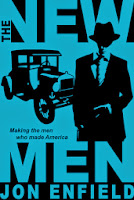Themes of race, class, immigration, and identity abound in Chimamanda Ngozi Adichie’s much acclaimed novel from 2013, Americanah. Ostensibly a love story about a man and a woman who meet as teenagers in Nigeria, the novel provides the gifted Adichie with a platform for a wide range of social commentary about life in Nigeria, America, and Great Britain. Partly a comedy of manners and partly a novel of ideas, I found Americanah to be both fascinating and frustrating.
The Story: Adichie begins her novel with the visit of a woman named Ifemelu to an African hair salon in Trenton, New Jersey. Ifemulu is having her hair braided in preparation for her return to Nigeria . . . but, despite her outward appearance of confidence, Ifemelu wonders whether Nigeria is still her “home” and whether she will belong there after 13 years abroad.
During the lengthy process of having her hair braided, Ifemelu considers her teenage years in Nigeria and what brought her to America. She thinks, in particular, about her former boyfriend Obinze, with whom she lost contact after coming to the U.S. Ifemelu and Obinze, the childhood sweethearts whom everyone thought would marry, have taken vastly paths in their lives . . . but both left Nigeria, a land crippled by its corrupt military dictatorship, to seek a better life.
As the novel unfolds, Adichie reveals Ifemelu’s experiences in America—her initial difficulties in finding a job to support herself while in college, her relationships with her boyfriends (both black and white), and her growing awareness of her differences, as a non-American black, from African-Americans. Obinze, meanwhile, unable to gain a visa to enter the US after 9/11, travels instead to Great Britain, but struggles there. He returns to Nigeria feeling like a failure, but finds wealth, if not necessarily happiness, working as a property developer for a shady but powerful entrepreneur.
The reader can guess that Adichie will find some way to reunite Ifemelu and Obinze in Nigeria … but the question of whether they will find love together or mourn the passing of their old relationship, alongside their old lives, provides the tension of the final quarter of the novel.
My Thoughts: Adichie, first of all, is a wildly talented writer. Her ear for dialogue is amazing, and her social satire is witty, sharp, and richly observed. Adichie impressed me with her ambition in this epic of a novel, as well as her willingness to tackle big issues and ideas.
And yet . . . at various points in this novel, I couldn’t shake the feeling that Adichie had bitten off more than she could chew. She tries to cover so much ground in Americanah; it’s a love story spanning decades and continents, AND it’s a dissection of race, PLUS a novel about identity, immigration and emigration. Sometimes all of this comes together and the novel works brilliantly, but sometimes, honestly, it feels like a bit of a sprawling mess. Literally dozens and dozens of minor characters—many of them quite interesting--appear in the novel for a scene or two and then just as suddenly disappear, their stories completely dropped. I couldn’t help but feel that a tighter, more disciplined focus might have strengthened the novel.
Adichie has so much that she wants to say about race and immigration and class . . . and it is mostly very intriguing commentary that I wanted to read. But the plot and the characters are often secondary to Adichie’s points about big issues, and that makes Americanah suffer, in the end, as a work of fiction. I can tell you plenty about Ifemelu’s views about race, about politics, and even about natural hair, after reading this novel . . . but her emotions and inner thoughts are still a mystery to me. I don’t fully understand why Ifemelu made some of the key choices that she did, and I found that frustrating as a reader. I would say, as well, that I thought Obinze received short shrift as a character—I wanted to hear more of his experiences. Throughout much of the novel, I longed for more of Ifemelu and Obinze--they, after all, are supposed to be the center of the story, and yet sometimes I felt as if they were buried under the weight of Adichie's social critique.
I would rate the novel about 3.5 out of 5 stars, despite my criticisms of it, because it is so well-written, witty, and genuinely fascinating. I will certainly read Adichie again.

















































